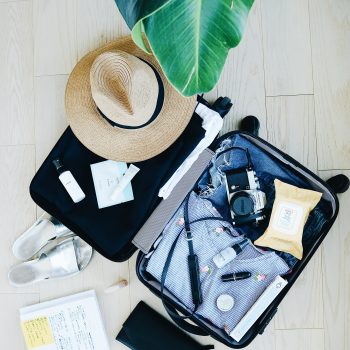Etiquettes of land are shaped by its culture and tradition. Many gestures that are considered polite in some countries might be inappropriate in others. The varying formalities in different lands can confuse any foreigner. As a traveler, it is imperative to know the customs in the country that you are planning to visit. Time spent understanding the unfamiliar etiquettes is worth it as it can save you embarrassment. These are some things no travel and tourism company can point out in their brochure.
We hope this blog post will give you an idea of the weird etiquettes to look out for while you are on your world tour.
Bow low
In Japan, people greet each other by bowing. If you are an action movie enthusiast, you might have seen this in Asian martial arts movies. But the thing to know while bowing is that you have to bow lower than older guys. Even if the person is one year older, you have to bow lower than him. Such respect is hard to find in any other place on your tour.
Eat according to seniority
The dining table is where different countries have the most etiquette It is the norm in Korea to let the older guys start eating. It is considered rude to eat first, if there is an older person on your table, even when you are hungry. While on your tour around the world, you may visit a Korean home and may be invited to dine with them. If so, keep this formality in mind, else you might make your hosts uncomfortable.
Taste all dishes, do not overeat
French people are very hospitable and they make a lot of dishes if a guest is visiting their home. It is considered impolite not to taste everything served. So even if you feel full, you have at least have a nibble of everything on the table to make your host happy. But even if you like one particular dish, do not eat the whole of it. This is because the French tend to make food in small quantities and you are supposed to share the food with everyone.
Do not touch your food with your left hand
It is well known that people eat their food with bare hands in India. The use of spoons and forks are not familiar to the commoners. If you plan to visit an Indian household on your international tour, you will also be forced to eat with your hands. But beware! It is very rude to touch the food with your left hand. Even if you are a leftie, you will have to eat the food only using your right hand.
No lilies, please
It is traditional in western countries to bring flowers when you are meeting someone. The same is true in France, but you have to be careful while choosing them. Lilies are used only for funerals in the land. Hence, if you give someone lilies, it is as rude as saying,’ I wish you were dead.’ The same is true for Chrysanthemums in the land.
It is OK to rub the nose
Arab men rub their noses in greeting when they see each other. This is an old Persian custom seldom followed nowadays except among a few. But if you are visiting the United Arab Emirates or Saudi Arabia as part of your international tour, it is better to know about this custom. If someone comes close to you, do not get weary as they might be being friendly.
Have some more
In most countries, children are taught to clean their plates when they finish eating. But in a few countries like China, the Philippines, and some parts of Northern Africa, a clean plate implies that you are not full. The host will fill it as soon as you finish off your food. They will insist you have more, so there is no point in refusing. The only way to show that you are really full and cannot have one more morsel is to leave a bit of food on your plate.
Stick your tongue
In European countries, sticking out your tongue is seen as mockery and is hence very disrespectful. This is the case in most countries in Asia except Tibet. The natives have the habit of sticking their tongue out as a greeting. The custom stems from the belief that the demon king has a black tongue. By sticking their it out, Tibetans demonstrate that they do not have a black tongue and hence are not his descendants. You may have to follow the custom when you are in Tibet. Your travel agency may have intentionally forgotten to tell you this.
Gestures can be confusing
Body language and hand gestures are as important for communication as the spoken language itself. But they differ so much in different countries. A polite gesture in your country can be confusing, even offending in the destination you are traveling to. For example, every culture has a gesture for food and eating. But someone on their tour will see the drastic difference in this gesture when they travel from country to country. Even the famous OK gesture is interpreted in different ways in different countries. It is seen as money in Japan and as zero in France.
Coffee rules
Coffee is an indispensable part of Arab cuisine. It is customary for the host to refill the coffee cup of their guest as soon as they finish it. As a foreigner, you might feel obliged to keep on drinking it, but how to stop your host politely? It is simple. You have to shake the cup, tilt it, and lay it on its side. Your host will understand that you are full and need no more.
Don’t flip the fish
In the rural regions of Hong Kong, there is a strange custom. While eating fish, they will not flip it and start from the other side. Such an act is believed to bring bad luck to the household. This may not be specified by any travel and tourism company while they arrange a tour for you to Hong Kong. Unless you wish harm on the good host who invited you to dine with him, do not flip the fish. Remove the bones after finishing the upside and start with the lower part.
Kiss the bread
Food is regarded with great respect in Afghanistan. To drop the bread, or any food item for that matter, on the floor is considered derision. So what to do if you accidentally drop the bread while you are in Afghanistan? Very simple, you pick it up with both your hands and kiss it. That is the Afghaneese way of showing respect to the food item. Strange, isn’t it?
Don’t arrive early
Another funny custom, this time from Mexico, is about arriving early for a meeting. It is considered impolite, if not rude, to arrive before time anywhere. Most natives try to be late by at least five minutes to show respect. So if you are very punctual, and have the habit of arriving someplace before time, you will be respected in most countries, but frowned upon in Mexico. Keep this in mind in your international tour.
Four? Oh my God
Chinese are not very fond of the number four. When you are traveling through China on your tour, you can find many hotels that skip the fourth floor. Linguistic experts say that the pronunciation of four in Mandarin sounds similar to death in the language. This is the reason behind the superstitions. Anyway, when you travel to the land, make sure to sidestep the number four, else you may appear offensive to the natives.
So these are some of the many confusing etiquettes and customs from around the world. For a world traveler, they might seem curious if not idiotic. But when you are in a foreign land, it is better to abide by the behaviors considered normal there. Natives will bond easily with someone who follows their etiquette with respect. Without a doubt, mingling with the natives will make the trip more enjoyable.






No comments
No comments were posted yet.